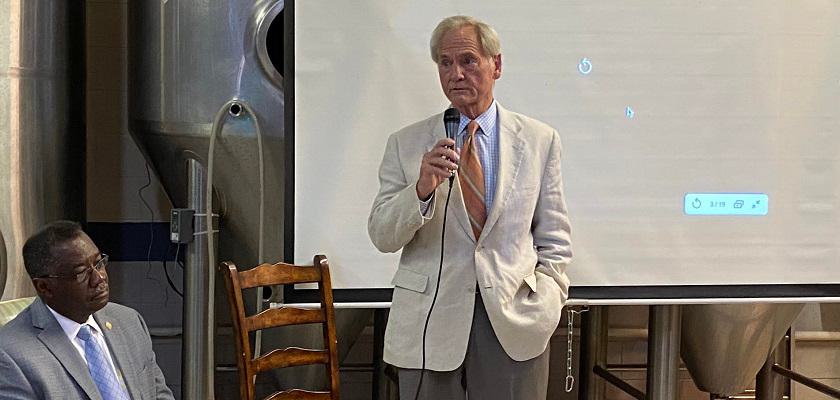The closest Alabama came to enacting a lottery came more than two decades ago. Although it had made it to the ballot, the voters defeated it by a 54%-to-46% margin in a 1999 special election.
The man who headed the effort at the time was then-Gov. Don Siegelman, the last Democrat to be elected to the state's highest office. A lot has changed since the failed 1999 vote. But one thing remains: Alabama still does not have a lottery.
Monday, during an interview with Mobile radio FM Talk 106.5's "The Jeff Poor Show," Siegelman weighed in on the latest effort to bring a lottery to Alabama, introduced in the House of Representatives by State Rep. Chip Brown (R-Hollingers Island).
Siegelman said he continues to support a lottery but has doubts about a competing so-called comprehensive gaming proposal brought in the legislature's upper chamber by State Sen. Greg Albritton (R-Atmore).
"First of all, there needs to be a straight-up vote on the lottery," Siegelman said. "Now, I think if [Rep.] Chip Brown's bill is able to make it out of the Senate, and if it is placed on the ballot, I think a lottery would certainly pass.
"I do not believe, and I would not support the current legislation that binds all of these -- the casino, the sports betting, the lottery all into one package. It gives preference to basically the Poarch Creek Indians and the dog track owners. That makes absolutely no sense from a public interest standpoint."
Siegelman suggested breaking up any effort to legalize various forms of gaming as not to favor any particular special interest.
"Any kind of casinos need to be publicly bid," Siegelman said. "We do not need to give billions of dollars away to our friends. These folks in the House and Senate are not elected to skew legislation to reward special interest.
"Yes, we need a vote on the lottery. We need a vote on casinos. And we need a vote on sports betting. But they all need to be separated, and the voters need to be able to say yes or no to each category of gambling."
The former governor also proposed a different process than what is currently being considered, allowing the winning bidders to negotiate terms with local officials to determine where those gambling facilities should be located.
"The second thing is, in addition, to publicly bidding, we need to allow that company that wins that public bid to negotiate with local political leaders to decide where they want the casino to be located," Siegelman said. "Should it be at a dog track out in the boondocks? Or should it be on the waterfront where the hotels and all of the Interstates come together?
"Let the local elected leadership negotiate with the winner of the public bids for the casinos, and the state will be a whole lot better off financially."
To connect with the author of this story, or to comment, email jeff.poor@1819News.com.










